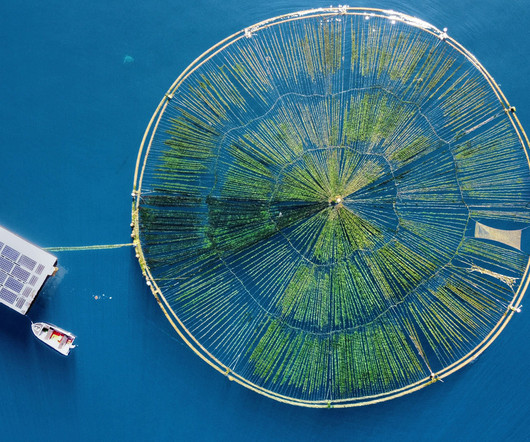Pilot Project Sends Kelp–and Carbon–to the Seafloor
Cars That Think
DECEMBER 21, 2023
The Climate Foundation , the Seattle-based company behind the project, has found that this deep cycling makes kelp grow three times as fast as it can when kept in shallow waters, as seaweed farmers do now. Over the past decade, we’ve gone from designing systems on a chip in Silicon Valley to systems on a ship in the Pacific Ocean.”


















Let's personalize your content